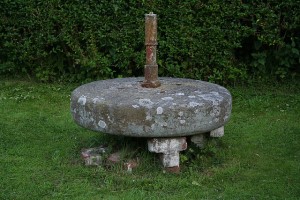Spreekwoorden en Uitdrukkingen (Sayings and Expressions) 1 – The Calf and The Stone Posted by Sten on Jul 24, 2014 in Dutch Language
Spreekwoorden (sayings) and uitdrukkingen (expressions) are very useful in everyday language and knowing them makes things easier to understand when you hear them. In this series, I will try to explain the origin of the sayings and expressions, explain its use and give examples of possible ways of using them.
This week we will start off with a spreekwoord that is quite related to the consequences of the downing of flight MH17. All airlines now changed the airspace they fly over to avoid the (eastern) Ukrainian sky. There is a very interesting spreekwoord for this. This comes first.
The uitdrukking this week is one that Mark Rutte used just a few days ago when he talked about the investigation of this disaster. Just read on to find out what he said!
For other sayings and expressions in this series, click here.
Als het kalf verdronken is, dempt men de put
When the calf has drowned, the well is filled up (i.e. closing the stable door after the horse has bolted)
Just as the English spreekwoord, the Dutch one refers to a bad happening followed by action to prevent it from happening again. It obviously comes too late, and as such this spreekwoord can be seen as a verwijt (reproach). It is especially used in situations where one knew very well that something bad could occur, but just nothing was done. This can justify this verwijt.
Its origin lies in the sixteenth century, when the kalf was a kind (child). The switch only came in the seventeenth century. Another version that was used was: als het kind verdronken is, dempt men de gracht (when the child has drowned, the gracht is filled up). I suppose people found the spreekwoord using a child going just a bit too far…
Use
This saying is quite widespread in the Dutch language. It is used in many occasions where something should have been done before, but nothing has been done. Examples:
Nadat een ongeluk was gebeurd, werd er op de weg eindelijk het snelheidlimiet aangepast. Als het kalf verdronken is, dempt men de put.
To lift the lower stone to the top (to leave no stone unturned).

Build vocabulary, practice pronunciation, and more with Transparent Language Online. Available anytime, anywhere, on any device.
About the Author: Sten
Hi! I am Sten, both Dutch and German. For many years, I've written for the German and the Dutch blogs with a passion for everything related to language and culture. It's fascinating to reflect on my own culture, and in the process allow our readers to learn more about it! Besides blogging, I am a German-Dutch-English translator, animator and filmmaker.





Comments:
Forever:
That’s really shdwre! Good to see the logic set out so well.